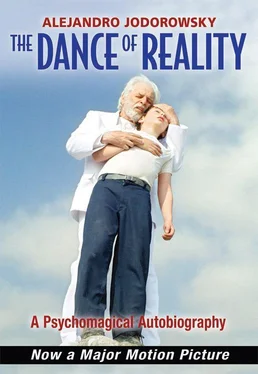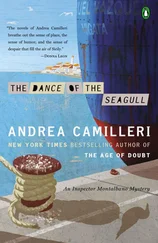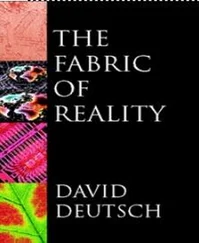Luz’s boyfriend, obviously madly in love with her, was an older painter by the name of André Racz, who had a prophet-like appearance, wearing long hair and a beard halfway down his chest. He lived in an old studio, much longer than it was wide, at least three hundred square meters. It was reached via a long, dark passageway with a cement floor with rusty rails in it, giving the place the appearance of an abandoned mine. Racz’s paintings and engravings were based on the Gospels. Christ, who bore the artist’s face, was shown preaching, performing miracles, and being crucified in the contemporary era amidst cars and trains. The soldiers who tortured him wore German-style uniforms. One of them shot him in his side with a pistol. The Virgin Mary was always a portrait of Luz.
I was pulling my puppets out of my suitcase, one by one. Racz, his attention consumed by the beauty of his girlfriend, was barely looking at them. Luz, without seeming to notice this embarrassing situation, smiled as if waiting for a miracle. And a miracle occurred! One puppet to which I had given the supporting role of a drunken bum, wearing a patched coat, long hair, and abundant beard, revealed his true personality upon emerging in this environment full of religious paintings: he was Christ. And the most surprising thing of all was that his features were very similar to those of André Racz. The painter moved the puppet with the enthusiasm of a child, engaging in dialogue with it. Luz took the puppet’s hands and began to waltz with it. Racz followed her like a shadow all around the studio. I saw in his dog-like glances that he wanted my puppet to be his own so that he could give it to her. I immediately told him, “It’s a gift. Take it.” He answered me with great emotion. “Young man, you are a divine messenger. You did not arrive here by chance. Without knowing me, you made my portrait. I have just bought a plane ticket to go to Europe. I need to put an abysmal distance between Luz and myself. I’m old enough to be her grandfather. I’m chaining her to an old man. I know she will sleep with the puppet as she is remembering me. It will make the breakup easier. This is my studio; we have spent unforgettable moments together in it. I will give it to you. I do not want to abandon it to vulgar hands. Now go, I want to say goodbye alone to my Virgin.”
I left the room as if emerging from a dream. It seemed impossible that someone would so suddenly give me a studio in which I could live as I pleased. But it was true. The next day Luz came to get me, accompanied me to the studio, and said rather sadly, “André gave me all his paintings but didn’t want to give me his new address.” She handed me the keys to the studio and left. I never saw her again.
Thus, overnight I found myself the proprietor of a huge space at 340 Villavicencio Street, perhaps the site of an old factory, which, being at the end of a hundred-meter-long tunnel, was isolated from the neighbors. There I could freely make all the noise I wanted. I believed that the ultimate achievement of an artist was to become a creator of parties. If everyday life seemed like hell, if everything boiled down to two words, permanent impermanence, if the future that was promised us was the victory of the persecutors, if God had become a dollar bill, then I had to abide by the words of Ecclesiastes: “There is nothing better for man than to eat, drink, and make his soul merry.” My weekly “studio parties” became very well known. People from all walks of life attended. A phrase from Hesse’s Steppenwolf was written on the door: “Magic Theater. Price of Admission: Your Mind.” By the door a former mendicant, Patas de Humo (“Smokey Paws”), who normally slept in the tunnel and whom I had taken on as my assistant, gave out a quarter-liter glass full of vodka to each guest. For those who did not gulp it down, there was no getting in. Those who accepted this hefty drink, which would get them drunk immediately, were admitted by Smokey Paws with an affectionate kick in the rear, whether man or woman, young or old, laborer or legislator. Once inside there was no more drinking, just conversation and dancing, but no popular music, only classical. The biggest hit was Swan Lake. In that space, as full as a rush-hour bus, groups of people improvised, imitating the mechanical gestures of the Russian ballet with tremendous grace. The mingling of artists with university professors, boxers, salesmen, produced an explosive mixture. As the drink was limited to that initial quarter liter, there was no violence and the party became a paradisiacal game. Naturally now and then, almost without intending to, someone would climb up on a chair and become the center. These interventions were short, but their intensity made them unforgettable. A young law student once loudly declared that his father, a famous lawyer who lived secluded in his immense library, had never permitted his son to read a single one of his precious volumes, always keeping his library locked.
“Well, before coming to this party, I saw my father asleep at his desk, face down on some papers. I entered into this sacred enclosure for the first time ever, with intense emotion I picked up one of his books, and then. look at this!” And the young man produced the spine of a book out of the backpack he wore. “All volumes were false: a collection of spines, nothing more, hiding cabinets filled with bottles of whiskey!” Then he started screaming, “Who are we? Where are we?” and let himself fall, arms outstretched, amidst his audience.
Another time, an older man got a seductive young lady to get up on the chair with him. He said, with tears in his eyes, “I waited all my life. Finally I found her. I would cover her with caresses, but. ” With his left hand he removed his right hand, which was artificial, and shook it: “I lost it as a child. I got so used to my false hand that I grew up without thinking about how it was missing. Until the day that Margarita offered her body to me. And I, only half-caressing her, wished that I had two, three, four, eight, infinite hands to slide over her skin for eternity.”
Twenty men raised their hands and, standing in a compact group behind the man with the missing hand, became one with him. The woman let the two hundred and five fingers run over her body.
Another man, of a neat appearance, with a deep voice and measured gestures, giving an unexpected shout, climbed onto the shoulders of a young man and asked for everyone’s attention. When he had it, he tore off his tie and cried out, “I’ve been married twenty years; I have a wife and my two children! I’m tired of lying! I’m gay! And the young man carrying me on his back is my lover!”
Without knowing it, by considering the creation of parties as the supreme expression of art, in 1948 I was discovering the principles of the “ephemeral panic,” which artists would later call “happenings.”
On one occasion a young man of my age, nineteen years, with an intelligent face, a tall and thin body, an African baritone voice, and the hands of an aristocrat, climbed onto the confessional chair and swaying like a metronome put an oval mirror in front of his face like a mask and began to recite a long poem. This was Enrique Lihn. Even at that young age the genius of poetry dwelt within him. His talent awakened great admiration in me. I obtained his address through some mutual friends and went to look for him at the house in the Providencia neighborhood where he lived with his parents, which in those days was considered a very long distance from the city center. The streets were lined with lush trees, and the houses were small, single story, with porches where fruit trees grew. Nervous, I moved the copper ring that served as a door knocker. The poet opened the door. Frowning, he growled, “Ah, the party planner! What do you want?”
Читать дальше












